Archive for GOVERNING BOARD – Page 4
SECRETS: YAVAPAI COMMUNITY COLLEGE GOVERNING BOARD ADOPTS PRESIDENT’S THREE ANNUAL GOALS FOR THE COLLEGE BUT CAN’T TELL THE PUBLIC WHAT THEY ARE
PRESIDENT’S CONTRACT AND DELEGATION OF AUTHORITY ON AGENDA FOR YAVAPAI GOVERNING BOARD DECISION AT “WORKSHOP” TO BE HELD MONDAY, NOVEMBER 14, 2022, AT 9 A.M. AT THE ROCK HOUSE ON THE PRESCOTT CAMPUS
Unclear why President’s contract is up for discussion after receiving a 10 percent increase in May 2022. Also unclear is a Resolution to be considered directing the President to create “Necessary Infrastructure”; it appears the Resolution involves delegating more Board authority to the President
There are two items of important business to be conducted at the Governing Board meeting on Monday, May 14. One of them is the President’s contract.
 Exactly what aspect of the contract is to be considered is not clear from the agenda posting. Recall that the Yavapai Community College District Governing Board voted to increase the base pay of Dr. Lisa Rhine by ten percent at the Board Workshop held May 24, 2022. It also added an extra year to her five-year contract. The pay-raise of 10% and contract extension vote was identical to the raise and extension awarded in 2021.
Exactly what aspect of the contract is to be considered is not clear from the agenda posting. Recall that the Yavapai Community College District Governing Board voted to increase the base pay of Dr. Lisa Rhine by ten percent at the Board Workshop held May 24, 2022. It also added an extra year to her five-year contract. The pay-raise of 10% and contract extension vote was identical to the raise and extension awarded in 2021.
This was a generous base-pay increase when compared to how faculty and staff increases were treated just a week earlier. Recall that at the May 17 General Board meeting the Board approved a 4% across-the-board salary increase, .45% one-time bonus, and 1.3% for market adjustments, etc. for all staff and faculty.
At the time of its May decision, the Governing Board did not provide any indication of Dr. Rhine’s current base salary. Most observers believe it is nearing $300,000 annually. Dr. Rhine is the highest paid Yavapai County officer.
Now, just six months later, the question of the President’s employment agreement will be discussed in secret during Monday’s “workshop.” In a vaguely worded statement, the agenda for the meeting says that there will be “Discussion or Consultation for Legal Advice with the Board’s Attorney Regarding the President’s Employment Contract and to consider its position and instruct its attorney regarding the President’s Employment Contract.” It goes on to say that there will be “Possible Action RE: President’s Evaluation and Consideration of President’s Contract as a result of Executive Session.”
It is anticipated that nothing significant regarding the contract talks will be divulged to the public.
The Board will also be asked to delegate Board authority by approving a resolution regarding “infrastructure.” It is not clear why such a resolution is needed. (See draft copy of resolution below:
DRAFT OF RESOLUTION FOLLOWS
YAVAPAI COLLEGE DISTRICT GOVERNING BOARD RESOLUTION DIRECTING THE PRESIDENT TO CREATE THE NECESSARY INFRASTRUCTURE TO MEET THE CHANGING NEEDS OF STUDENTS AND EMPLOYERS RESOLUTION 2022-10
RECITALS:
WHEREAS, the District Governing Board is the legally constituted and final authority for the operation of Yavapai County Community College District, including any policies that govern the College;
WHEREAS, the Governing Board’s responsibility includes 1) governing the College as a whole, and 2) delegating authority to the President to perform and oversee the daily operations and administrative functions of the College;
WHEREAS, the Governing Board understands that new educational content providers and distribution in the higher education marketplace are driving up institutional competition and consumer choice;
WHEREAS, the Governing Board understands that enrollments in traditional community colleges are declining nationally and in Arizona and are increasing in four-year institutions;
WHEREAS, the Governing Board understands that Arizona public universities are now piloting 2-year Associate Degrees, offering short-term credentials and noncredit workforce offerings, and placing regional economic development centers in our counties to grow their enrollments;
WHEREAS, the Governing Board understands that in order to meet the changing needs of learners in the knowledge economy, community colleges must be prepared to adopt and implement new, innovative strategies for delivering educational opportunities;
WHEREAS, the Governing Board believes that the College plays an instrumental role in meeting the needs of students and employers and that an expanded and effective infrastructure is vital to the continued operations of the College, so that Board goals are realized;
ENACTMENTS:
NOW THEREFORE BE IT RESOLVED that the Yavapai County Community College District Governing Board delegates to the President the authority and responsibility for creating an infrastructure that meets the changing needs of today’s learners and provides workforce driven educational opportunities, which shall be based on the following principles:
- The knowledge economy requires a new model of higher education that is rooted in outcomes and learning rather than an industrial era model of higher education, focused on time, process and teaching.
- Increasing short-term workforce certifications and just-in-time education defined by industry need is critical to meet the educational needs of students and the community in support of our economy.
- With near universal access to digital devices and the internet, new modes of delivering content and new technology tools need to be leveraged to meet the changing needs of learners
- The infrastructure created pursuant to this Resolution will align resources, policies and strategies for the implementation of a talent pipeline for employers, establish a model for sector-based partnerships, clearly define pathways that address the needs of employers and potential employees, and partner with online platform providers and independent work facilitators or enterprise businesses to provide industry-specific or business-specific training that businesses cannot provide.
- The infrastructure shall be evaluated by the President each year to determine whether it has met the goals adopted by the Governing Board in this Resolution and whether it should be modified to better effectuate those goals. The President shall inform the Governing Board of the results of the evaluation at least once yearly, starting with a report in or before October 2023.
NOW, BE IT ALSO RESOLVED that the Governing Board delegates to the President such additional authority as is necessary to ensure that College operations meet the changing needs of our students and employers.
The Governing Board shall retain all powers and duties as prescribed by law that are not formally delegated in this Resolution or Board Policies.
PASSED AND ADOPTED by the Yavapai County Community College District Governing Board this 14 day of November, 2022.
Ms. Deb McCasland, Board Chair Approved as to form:
Mr. Ray Sigafoos, Board Secretary
====================================================================
AGENDA
- General Functions: Procedural
- Call to Order {Time: 1}
- Adoption of Agenda – DECISION {Time: 1}
- Board Business
- Executive Session – Pursuant to A.R.S. §38-431.03(A)(1), Review of President’s Employment Agreement – Attorney Lynne Adams – PROCEDURAL {Time: 60}
- Executive Session — Pursuant to A.R.S. §38-431.03(A)(3) & (4), Discussion or Consultation for Legal Advice with the Board’s Attorney Regarding the President’s Employment Contract and to consider its position and instruct its attorney regarding the President’s Employment Contract – Attorney Lynne Adams – PROCEDURAL
- Reconvene in Public Session – Attorney Lynne Adams
- Possible Action RE: President’s Evaluation and Consideration of President’s Contract as a result of Executive Session – Attorney Lynne Adams – DECISION {Time: 5}
- Study Session
- The Association of Community College Trustees Review – INFORMATION AND DISCUSSION – Board Chair Deb McCasland {Time: 30}
- Changing Higher Education Landscape – INFORMATION, DISCUSSION, AND DECISION – Dr. Lisa Rhine {Time: 120}
- Scott Van Pelt Video
- A New Infrastructure Presentation
- Yavapai College District Governing Board Resolution Directing the President to Create the Necessary Infrastructure to Meet the Changing Needs of Students and Employees – Resolution 2022-10 (Attached)
- District Governing Board Policies Review – INFORMATION, DISCUSSION, AND DECISION – Dr. David Borofsky, Director of the Arizona Association of Community College Trustees {Time: 90}
- Adjournment of Board Workshop: Procedural – DECISION {Time: 1}
REP CHEVALIER QUESTIONS WHY COMMUNITY COLLEGE DISTRICT BOARD MEETINGS ARE NO LONGER LIVE STREAMED
In a County the size of Israel with faculty, students, thousands of elderly, disabled and others working full time having an interest in the tax supported College Board decisions, it has suspended live video streaming of its meetings. The Board Chair says wait for video to be posted in the future and that’s enough| The May video, for example, was posted four months later at the end of September and that’s apparently ok
Yavapai County covers 8,125 square miles and compares in size with Connecticut, Delaware, Rhode Island and New Jersey. It is about the size of the nation of Israel. It is only slightly smaller than Maricopa, County, Arizona. Maricopa covers 9,224 square miles and is the fourth largest county in the United States.
The County is divided by the Black Hills mountain range that runs west and east with Mingus mountain creating a natural physical barrier between the two sides of the County. There are few roads connecting the concentrated population centers in the west region of the County with the more rural areas in the east. For many, the most direct route in the east region to the west region is a single-lane alternate highway 89-A. It somewhat perilously crawls over Mingus Mountain at 7,815 feet.
During the winter, passage using highway 89A over the mountain range can be dangerous because of ice and snow packed roads. There is no public or private transportation between the east and west sides of the County.
The College has invested thousands of dollars on expensive television equipment, renovating the Rock House in part specifically for tv, and has asked for thousands more to create a tv facility on the Prescott Campus. Despite the taxpayer investment, purchase of equipment, and availability of easy live broadcasting on the College’s YouTube channel of its handful of yearly meeting, the District Governing Board, according to its Chair, has decided to no longer live-stream the events. That leaves faculty, students, interested residents, and especially those with disabilities in the dark waiting until the video is eventually posted at a time when memories may have faded and important actions taken without resident knowledge have been made.
In some cases, such as the May 2022 budget meeting, the video of the Board meeting was not posted to the website until four months after the meeting in late September. Think of that!
Late posting allows the College Board and the College itself to spread and sculpture their views of what transpired at a Board meeting. The Board can rely on declining interest in a topic over time to accommodate their lag in producing the video or posting detailed minutes for public review.
If you are in the know about how to eventually find a Board video before it is actually posted to the website, and only a few in the County are, the College will send you a link to the video a few days after it was held. But you must wait. You also must know that your request needs to be sent to the College President’s administrative assistant. Of course, this information is kept from the public because nowhere on the Board website or anywhere else is the public informed of how to obtain a link to the video.
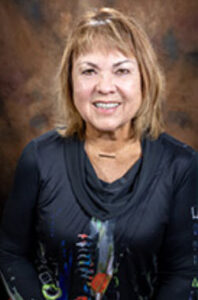
District Governing Board Chair Deb McCasland
Third District Governing Board Representative Paul Chevalier, who is concerned that matters not be so easily covered up from residents by the College and Board, recently asked the Board Chair the reason the live streaming had ceased. The Chair replied: “With our meetings open to the public now that there are no Covid restrictions, we are not live streaming our meetings on uTube. UTube was a Covid accommodation for the Open Meeting Law. The meetings are still being recorded and can be requested through Yvonne or view it on the college website as we have done for many years.”
The Chair may not realize that the Videos are not promptly posted after a meeting, but are posted on the Board website only after minutes are approved. This may be months following a meeting. The Chair may also not realize that there is no information posted on the Board website so that members of the public, faculty or students know to whom and how to request a link to the video. The Chair may not realize that the videos are not available until three business days after the meeting has passed, even if you know where to find them.
Mr. Chevalier’s initial request that the College live stream the handful of Board meetings was turned down by the Chair. He wrote in an email to the Chair asking for reconsideration and saying that:
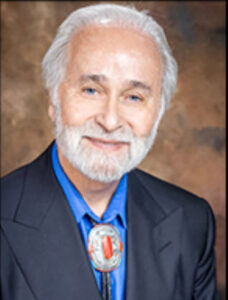
Third District Representative Paul Chevalier
“People find it quicker and more convenient than waiting for and getting into our videos. . . . I am aware of City Councils in our county that regularly stream their meetings through YouTube. Is that difficult or expensive for us to do? If not, I believe it would be a good service to the interested public we serve. Please reconsider.”
The Chair indicated there would not be reconsideration.
Mr. Chevalier noted in his emails to the Chair that the County can expect “more covid cases this winter,” which apparently had no effect.
In the end, the District Governing Board continues to draw a curtain of semi-secrecy about its proceedings. Unlike in the past, agendas are posted to the Governing Board website without attachments; they are as short as possible. PowerPoint slides, once always posted to the Board website prior to Board meetings, are no longer posted. Minutes of the meetings themselves are summary and do not contain important comments from various Board members. Videos that are being produced with sometimes defective sound, poor lighting, interviews with the public without aueio, and overall poor video production. PowerPoint slides being used by a speaker may not appear anywhere on video (or in draft minutes).
It’s hard to believe that a Governing Board of a Community College has yet to recognize it’s the 21 century. And, that it is regressing to the 19th century in record keeping and accountability.
Or, is the College and this Governing Board simply trying to run from accountability to students, faculty, and the residents of Yavapai County?
GOVERNING BOARD REJECTS 3-2 REQUEST FOR GREATER DETAIL IN GOVERNING BD MINUTES AND REMOVES COMMENTS CONSIDERED TREATING MEMBERS UNEQUALLY
Majority says video of Board minutes is sufficient record of what members say as ironically mikes fail to pick up members speaking during parts of meeting; efficiency wins out over “man hours” and producing more detailed paper record of Board minutes
The Governing Board’s long agenda and overworked administrative staff have caused the minutes of Board meetings to be shorter and more succinct than in the past. They no longer, for example, contain brief summaries of positions taken by Board members. This has been a concern of Representative Ray Sigafoos.
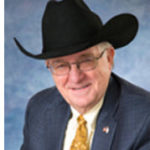
Ray Sigafoos
Representative Sigafoos urged the Board to adopt a policy that would require the minutes to contain in brief summary fashion relevant comments and positions taken by Board members during a Board meeting. He viewed a paper record as a more reliable historical record of various decisions made by the Governing Board.
Representative Chevalier agreed with Mr. Sigafoos regarding adding relevant comments and in addition argued he was concerned with equality as some Board member comments were included in the minutes but some of his comments were not. (See video tape link in re this discussion.)
A majority (Ms. McCasland, Mr. Padilla, Mr. Kuknyo) disagreed. Mr. Padilla argued that a video recording of the meeting was sufficient for historical purposes. When he weighed the number of hours it might take for an administrator to properly prepare minutes that included relevant summaries of positions taken by Board members against the availability of a video record, he came out on the side of the video record and administrative efficiency. His arguments carried the day.
On the question of treating comments of Board members equally, the majority decided to remove comments from a May 17 meeting made by Mr. Sigafoos rather than include the comments of Mr. Chevalier made at the same meeting.
You may view the video of the meeting and discussion on this issue with audio missing in part because of microphone failure by clicking here.
FOUR NORTHERN ARIZONA COMMUNITY COLLEGES (INCLUDING YAVAPAI) SIGN PARTNERSHIP AGREEMENT
Goal is to work together to benefit students and communities
The presidents of Coconino Community College, Mohave Community College, Northland Pioneer College, and Yavapai College recently signed an intergovernmental agreement called the Northern Arizona Community College Partnership (NACCP). According to a press release from Yavapai Community College, the agreement calls on the districts to collaborate and combine resources to better serve citizens and communities throughout northern Arizona. This includes sharing college courses to improve student success and completion and enhancing workforce development by utilizing each district’s vast array of unique programs.
The agreement states that the districts will “exercise efficient and maximal use of available educational resources through common and complementary resources of each institution.”
The colleges will specifically focus efforts to collaborate in areas of credit and non-credit offerings, curriculum development, data sharing, business functions, student services, and other support services to provide a cooperative higher education network for residents of Northern Arizona which includes Mohave, Navajo, Apache, Yavapai and Coconino Counties.
It is not clear how they will carry out their collaboration and no examples were given at the September Governing Board meeting.
The four northern Arizona college districts claim they will also work together to strengthen their partnerships with K-12 institutions, universities, and workforce development partners.
Board members from each district approved the agreement, and the districts began working together under the agreement on October 1, 2022. The issue was placed on the September 27 consent agenda for approval by the Yavapai Community College District Governing Board. It was approved without comment by the President or discussion.
Sources: Yavapai Community College Governing Board meeting September 27, 2022; Yavapai Community College press release dated October 3, 2022.
OPENING FOR YAVAPAI COMMUNITY COLLEGE DISTRICT 5 SEAT ANNOUNCED
Deadline for receipt of letters of interest, resumes and letters of recommendation is Friday, October 28, 2022, at 5:00 p.m.
Yavapai County School Superintendent Tim Carter has announced a vacancy on the Yavapai College District Governing Board for District 5. The opening was created by the resignation of Board Member Mitch Padilla, who will be leaving the Yavapai College Board on December 31, 2022, to become the Prescott Justice of the Peace, effective January 1, 2023.
If you are interested in filling the vacancy, send a letter of interest and a resume to Tim Carter, Yavapai County School Superintendent, Yavapai County Education Service Agency, 2970 Centerpointe East, Prescott, AZ 86301, Fax 928-771-3329, Email: Tim.Carter@yavapaiaz.gov. Please include information about yourself, including education and work experience, why you would like to be a board member, your residence and mailing address, your email address, and home/work phone numbers. Candidates may include up to three letters of recommendation of support if they wish.
To be eligible to hold this seat a person must; be a registered voter who resides in District 5, be a citizen of the United States of America, be at least 18 years of age, possess their civil rights, and they or their spouse cannot be employed by the college district. This is a non-partisan seat, and the appointment will reflect that statutory requirement.
Deadline for receipt of letters of interest, resumes and letters of recommendation is Friday, October 28, 2022, at 5:00 p.m. Superintendent Carter will make use of a five (5) member Candidate Review Committee. Committee members will reside in District 5. They will review letters of interest, resumes, and letters of recommendation. The committee will be made up of a taxpayer, a faculty member, a student, an elected official, and a person who works in the area of workforce development. The committee will decide who to interview, establish interview questions, interview the selected candidates on November 10th, and select three (3) candidates for consideration by Mr. Carter.
Prior to making the final selection, the Superintendent will meet separately with each of the currently seated Yavapai College Board Members for their input on the three finalists. Members of the public from District 5, will also have an opportunity to email their views to Mr. Carter or to meet personally with him for a brief 10 minute meeting from 9 a.m. – noon on Tuesday, November 15th or from 2 to 5 pm on Thursday, November 17th, after the finalists have been announced. The meetings will be on a first come, first basis.
The appointment should be announced by Wednesday, November 23rd. The term begins January 1, 2023 and will be valid through December 31, 2026. To continue beyond that date, the candidate will need to run for the seat in the 2026 general election for a new six year term beginning January 1, 2027.
If you have any questions, please call Mr. Carter at 928-925-6560 (cell).
Source: Press release Yavapai County Education Service Agency, https://ycesa.com/2022-yavapai-college-vacancy/
MCCASLAND WILL REMAIN ON GOVERNING BOARD FOR ANOTHER SIX YEARS
No one filed for the District 2 seat in the upcoming November election other than McCasland
Yavapai Community College District Governing Board Chair Deb McCasland will remain on the Board for another six year term, beginning in January 2023. McCasland’s current term ends this year.

Board Chair Deb McCasland
Because no one other than McCasland filed for the District 2 Governing Board seat, she will remain on the Board for the next six years.
McCasland’s Yavapai County District (precinct) includes: Aqua Fria, Beaver Creek, Camp Verde 1 and 2, Canyon, Cherry Creek, Cordes Lakes, Cornville, Crown King, Humboldt, Mayer, Middle Verde, Montezuma, Prescott Country Club, Stoneridge, Sugarloaf and Verde Lakes.
Of the five members on the Governing Board, McCasland’s seat was the only one up for election this year.
DISTRICT 5 REP MITCH PADILLA LEAVING GOVERNING BOARD IN DECEMBER AFTER TWO YEARS OF SERVICE
Will become Justice of the Peace for the Prescott District in 2023, which makes him no longer eligible to hold a seat on the Board
Attorney Mitch Padilla will be leaving the Yavapai Community College District Governing Board at the end of this year. He was sworn in to become a Board member on January 13, 2021.
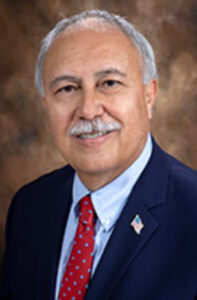
Mitch Padilla
Padilla won the primary election August 2 as a Republican against two other Republican candidates. Because there was no Democrat primary opponent, there will be no contest in the November general election. Padilla will take the seat as Justice of the Peace in January.
Padilla served two years of a six year term on the District Board. He represents District 5, which consists of Castle, Diamond Valley, Glassford, Granville, Groom Creek, Horseshoe, Lynx Creek, Mountain View, Prescott Valley 1/Navajo, Prescott Valley 2, Pronghorn View, Roundup, Superstition, and Yavapai Hills.
It is anticipated that the County Superintendent of Schools will appoint someone from District 5 to serve out the remainder of Padilla’s term.
THE ASSOCIATION OF COMMUNITY COLLEGE TRUSTEES (ACCT) SELECTS THREE RECIPIENTS FROM YAVAPAI COMMUNITY COLLEGE FOR ANNUAL REGIONAL PACIFIC AWARDS
Board member Ray Sigafoos, English Professor and Faculty Senate President Dr. Karen Palmer, and Yvonne Martinez-Sandoval, executive assistant to President Rhine and the District Governing Board, were chosen for their outstanding work
 The Association of Community College Trustees (ACCT) announced the recipients of its annual Regional Awards for community college trustees, equity programs, chief executive officers, faculty members, and professional board staff members on August 15. In the Pacific Region, Community College Board member Ray Sigafoos, English Professor and Faculty Senate President Dr. Karen Palmer, and Yvonne Martinez-Sandoval, the executive assistant to President Rhine and the District Governing Board, were recognized. They were among more than two dozen recipients of various awards from five regions made by ACCT this year.
The Association of Community College Trustees (ACCT) announced the recipients of its annual Regional Awards for community college trustees, equity programs, chief executive officers, faculty members, and professional board staff members on August 15. In the Pacific Region, Community College Board member Ray Sigafoos, English Professor and Faculty Senate President Dr. Karen Palmer, and Yvonne Martinez-Sandoval, the executive assistant to President Rhine and the District Governing Board, were recognized. They were among more than two dozen recipients of various awards from five regions made by ACCT this year.
To learn more about the awards and the reasons these people were selected, please read the Community College news article posted by reporter J.J. McCormick August 16, which can be found by clicking here.
REPRESENTATIVE CHEVALIER FINDS IT CHALLENGING TO GET AN ITEM ON THE APRIL GOVERNING BOARD AGENDA
Board Chair says items Chevalier wanted discussed based on March open call public comments were not appropriate Board matters but issues for President; Chevalier asks that those matters not within President’s ambit be discussed at May Board meeting
It’s sometimes tough, if not impossible, to get an agenda item placed on the Governing Board agenda for discussion. It’s even tougher to find a public way of getting a response from the Administration to concerns raised by citizens at various Board meetings if they are not discussed at a Board meeting. Citizens are left pretty much in the dark without a public response from anyone.
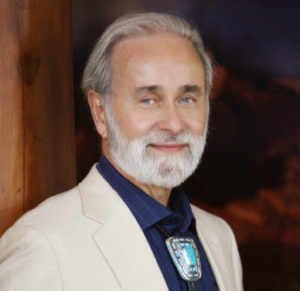
Third District Representative Paul Chevalier
The difficulty of getting a particular item publicly discussed by the Community College Governing Board was illustrated by the recent actions of Third District Community College Representative Paul Chevalier.
At the March 2022 Governing Board meeting in Sedona several citizens raised a number of issues during the Open Call to the public. There was, of course, no response from the Governing Board to them at that time because they weren’t on an agenda.
Also at the March meeting, immediately following the citizen comments, Mr. Chevalier specifically requested that an agenda item be added to the April agenda so several of the citizen comments, 27 of them, could be addressed by the Board. (Click here to view a video clip of Mr. Chevalier making the March request.)
Prior to the April meeting, Mr. Chevalier spoke with the Governing Board Chair. She explained that “our agenda was full with Board matters. I had a conversation with you that we only discuss Board business and that is why it’s not on this agenda.” When Chevalier asked if the Chair would put the item on the next agenda, the Chair replied: “I think I told you that a lot of your request was not Board business.” Chevalier then responded that he once again was formally requested that those items that were raised by the public at the March meeting that are Board matters be placed on the May agenda. (Click here to view a video clip of Mr. Chevalier making the April request.)
The Board meeting then moved on without further discussion.
Copyright © 2025 All Rights Reserved
 The question of goals the President of Yavapai Community College should achieve came up during a secret executive meeting on November 15, 2022, with the College District Governing Board. Apparently, three goals were agreed upon.
The question of goals the President of Yavapai Community College should achieve came up during a secret executive meeting on November 15, 2022, with the College District Governing Board. Apparently, three goals were agreed upon.